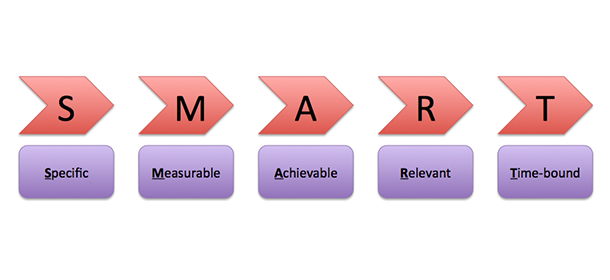Many of our blog articles are devoted to contracts and attempt to help educate our small business clients and prospective clients on the issues of contract law, as it pertains to their particular business.
In this article, I want to talk about a concept that not only is important in contract law, but is helpful in many areas of business: Proper goal settings. Along with proper goal setting, we will learn about S.M.A.R.T. goals and how they can help your business. By setting proper goals with yourself and others, you help to manage expectations and help to achieve greater chances of success. You also provide a mechanism to hold yourself and others accountable, and have fair mechanism to reward success and punish failure as appropriate or warranted. In other words, perfect stuff for contracts.
Let me give you a few examples to illustrate what I mean.
Avoiding FUD
Fear, uncertainty, and doubt can be prevented with strong communication and clear goals.
For the first example, suppose you’re burning the midnight oil to get an important proposal out the door. It’s 11:30pm, you haven’t eaten dinner, and your business partner pokes his head into your office and says, “I’m going to drop by our favorite fast-food place. Do you want anything?” You say, “Oh, yes, thank God!” and he smiles and leaves. How do you feel?
Are you left wondering what he’s going to get for you? How he’s going to pay for it? When he’ll be back? Are you filled with anxiety, frustration or worse? What happens if he takes longer than you think would be appropriate for such a task? Do you give up at some point and go yourself? Do you call him?
Lack of a clearly defined goal can create FUD (i.e. Fear, Uncertainty and Doubt) for the one who needs performance. Suppose the conversation went like this: He asks, “I’m going to call in an order at our favorite fast-food place and quickly pick it up. Should take no more than 30 minutes. What do you want?” And, you tell him your order and you give him money.
How do you feel after this transaction, versus the first transaction?
Details are Key
Strong details are essential in gaining people’s trust and repeat business.
For the second example, suppose you are starting a small home remodeling business, and you have your first customer who wants to remodel their kitchen. Consider two estimates: The first one has a very high-level description of the work you propose to do, including “paint, new cabinets, remove one wall and fixtures,” with one cost, saying 50% due upon signing, other 50% due upon completion of work. The other estimate is much more detailed, indicating all the things that will be done, a blueprint of the proposed new kitchen, dollar ranges for the new appliances, definition of the type of cabinets and counter-tops, and even a 3D walk-through of the new kitchen, along with full price, what is due when and estimated completion date.
Which estimate do you think the customer will accept, even if priced more? Which estimate do you think will get the business owner in trouble?
The first estimate will create all sorts of problems with both the business owner and home owner, because it’s very likely the home owner is thinking “granite” when the business owner is thinking “tile.” Further, because neither the time estimate nor specific details of the remodel are defined, it may be very difficult to finish the project, especially with a “difficult” customer. If this is your first customer, it could also be your last.
S.M.A.R.T. Goals and What They Mean to Successful Businesses
S.M.A.R.T. Goals are a way to help you define proper goals for your projects, contracts, customers, vendors and employees. For all your important goals, think of making them S.M.A.R.T.:
- Specific – State exactly what you want to accomplish in as much detail as possible (Who? What? Where? Why?). What are the constraints? “Remodel kitchen” is no where near specific enough. Put as much detail in place, as to leave no room for uncertainty, doubt or ambiguity. Does a remodeled kitchen include appliances or not? Top-shelf appliances or not? Granite counter-tops or tile? Hardwood floor, tile or linoleum?
- Measurable – How will you demonstrate and evaluate whether you’ve reached the goal? “Kitchen is remodeled” isn’t very measurable, and there’s much room for debate.
- Achievable – Can the goal actually be achieved? Does it make too many optimistic assumptions? What happens if there’s a delay somehow? How does the goal consider delays?
- Relevant – Is the goal relevant to your short and long-term plans?
- Time-bound – Every goal needs a deadline, then you need to stick to it. If you feel the deadline is too aggressive, remember the goal needs to be achievable. Dial back your specific goal so you can meet the deadline, or move back the deadline. Remember, however, that a deadline is very specific and very measurable, and others will likely rely on your commitment to fulfilling the goal within the set deadline. Miss this, and you will erode your trust with others.
When dealing with customers, employees or your vendors (including your lawyer), if you think in terms of S.M.A.R.T. Goals, not only will you achieve better results and more satisfied customers and employees, you will save money with your vendors yet obtain higher quality and better performance.




